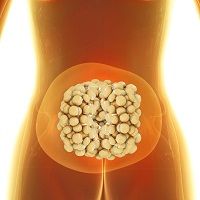Article
Leptin: 20 Years of Research on Metabolic Health
Author(s):
Leptin (an adipocyte-secreted hormone) has been an object of observation since 1994. Its levels in the body are roughly proportional to an individual's amount of adipose tissue. It seems to regulate energy homeostasis, decrease energy intake, and increase energy expenditure. From its discovery, researchers hoped that its manipulation could be useful clinically.

Leptin (an adipocyte-secreted hormone) has been an object of observation since 1994. Its levels in the body are roughly proportional to an individual's amount of adipose tissue. It seems to regulate energy homeostasis, decrease energy intake, and increase energy expenditure. From its discovery, researchers hoped that its manipulation could be useful clinically. A review article in the October 2015 issue of Current Opinion in Endocrinology, Diabetes, and Obesity briefs endocrinologists on leptin therapeutics.
Leptin's discovery open the door for better understanding of obesity's pathophysiology and potential treatments. Researchers identified two sources of leptin deficiency (congenital or acquired); patients who have these condition are usually obese, and also experience hypothalamic axis dysregulation. For these patients, the FDA approved metreleptin for injection in February 2104. Metreleptin therapy reverses morbid obesity and sometimes reverses lipodystrophy. In the pivotal trials, metreleptin was associated with reduced HbA1c (a measure of blood sugar control), fasting glucose, and triglycerides.
Conversely, typical obesity is usually accompanied by hyperleptinemia and leptin tolerance. Obese individuals tend to have higher leptin serum levels compared with normal weight individuals. For these patients, leptin therapy does not result in weight loss, dashing early hopes of a cure for obesity. Some studies suggest that it could be useful in combination with other therapies or for weight loss maintenance.
Some research indicates that modifying the metreleptin molecule or giving it in combination with other drugs or biologics increases its efficacy. PASylation seems to prolong leptin's half-life and a few modifications increase it transport through the blood brain barrier. Early studies showed that administering metreleptin with pramlintide improved efficacy but side effects were limiting. Animal studies confirm that drugs that activate the 5-hydroxytryptamine (5-HT) 2C receptors seem to be leptin sensitizers and potentiate leptin's body-weight lowering effects.




